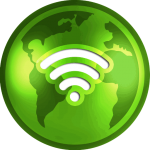High blood pressure, commonly known as high blood pressure, is a persistent medical condition that affects numerous individuals worldwide. Often referred to tonerin κριτικες as the “silent awesome,” high blood pressure can go unnoticed for many years, progressively destructive numerous organs and boosting the risk of major health and wellness difficulties. Identifying the signs and symptoms of hypertension is critical for early medical diagnosis and reliable management of this problem. In this short article, we check out the principal signs and symptoms of high blood pressure, providing useful understandings to help individuals determine and resolve this quiet threat.
It is necessary to keep in mind that hypertension is a multifactorial problem, affected by a mix of genetic, way of life, and environmental factors. While some people may experience obvious signs, many people with high blood pressure do not display any external indicators. Normal tracking of high blood pressure is the only sure way to identify hypertension properly. Nevertheless, some usual signs and symptoms might indicate the existence of depanten crema hypertension, and they must not be forgotten. These signs and symptoms include:
1. Headaches
Headaches, especially those occurring in the mornings, can be a feasible indication of hypertension. While frustrations can be triggered by various variables, regularly experiencing headaches, specifically at the back of the head, ought to prompt more investigation for high blood pressure.
High blood pressure can result in raised pressure on blood vessels in the brain, leading to headaches and various other neurological signs.
2. Exhaustion
Really feeling tired and doing not have power can be an indicator of hypertension. The increased stress on capillary because of high blood pressure can hinder the efficient delivery of oxygen and nutrients to the body’s cells, causing fatigue and a general sense of weakness.
3. Lightheadedness and faintness
Hypertension can cause disturbances in blood circulation to the brain, bring about episodes of dizziness and lightheadedness. These signs are particularly common when standing quickly or after prolonged periods of resting or relaxing and can indicate high blood pressure.
4. Lack of breath
Experiencing problem in breathing or lack of breath, particularly throughout physical effort, can be an indication of hypertension. Minimized blood flow to the lungs as a result of hypertension can impede the exchange of oxygen and carbon dioxide, leading to breathlessness.
In addition, high blood pressure can result in the accumulation of fluid in the lungs, better intensifying breathing difficulties.
5. Chest pain
Breast pain or pain can occur as an outcome of hypertension-induced heart problems. Hypertension can strain the heart muscle mass, causing conditions such as angina and even a heart attack. Upper body discomfort must constantly be taken seriously and assessed by a doctor.
It is very important to keep in mind that while these signs and symptoms can indicate the visibility of hypertension, they can also arise from other underlying medical conditions. Therefore, a thorough medical examination is needed to figure out the reason for these signs precisely.
When to Look For Medical Attention
If you experience any of the signs stated above or presume you may have hypertension, it is important to seek clinical interest immediately. While hypertension itself may absent prompt serious dangers, unrestrained high blood pressure over time can result in serious issues, including cardiovascular disease, stroke, kidney damage, and vision loss.
A healthcare professional will perform a detailed assessment, which might include high blood pressure surveillance, checkups, and lab examinations, to diagnose high blood pressure properly. Early detection and intervention play a crucial function in preventing or taking care of the long-lasting repercussions of hypertension.
- Administration and Therapy Options
Once diagnosed, hypertension can be efficiently managed via way of living modifications and, in some cases, medication. Embracing a heart-healthy lifestyle is important for regulating blood pressure levels and lowering the risk of issues. This includes:
- Eating a balanced diet rich in fruits, veggies, entire grains, and low-fat dairy items
- Lowering sodium intake by preventing refined foods and limiting the use of salt
- Participating in routine physical activity, such as quick walking, swimming, or cycling
- Keeping a healthy weight via a combination of a well balanced diet and physical activity
- Avoiding cigarette and extreme alcohol intake
- Handling stress and anxiety via relaxation methods like reflection, deep breathing exercises, or taking part in pastimes
If way of life adjustments alone want in regulating blood pressure, healthcare specialists might suggest medications to aid manage blood pressure levels. Drugs commonly used to treat hypertension include diuretics, beta-blockers, angiotensin-converting enzyme (ACE) inhibitors, angiotensin II receptor blockers (ARBs), calcium channel blockers, and others. These drugs work by loosening up blood vessels, minimizing fluid quantity, or disrupting hormonal procedures that add to high blood pressure.
Verdict
High blood pressure is a prevalent condition that usually goes undetected as a result of the lack of evident signs. Nonetheless, numerous indicators can suggest the visibility of hypertension. Frustrations, fatigue, lightheadedness, shortness of breath, and breast pain are several of the signs and symptoms connected with hypertension. It is necessary to know these signs and look for clinical interest promptly to stop long-term complications. An alternative strategy, combining lifestyle modifications and, if needed, drug, can properly handle high blood pressure and improve general wellness.
